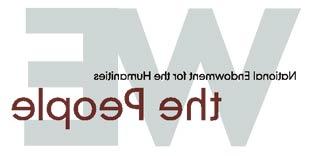教训
Lesson for Core Concept #7: Differing Expectations
Jacqueline Fernandez, Graduate Education Intern, Tufts
People from different social and economic classes had different expectations of how the growing conflict with Great Britain would impact their lives.
Do You Know Your Audience?
目的:
Encourage and develop students’ ability to analyze primary source documents, understand differences in expectations of people during the years leading up to the American Revolution and how those differences would affect approach and appeals to diverse audiences; and strengthen students’ ability to collaborate in teams and speak before an audience.
目标:
By the end of the activity, students will understand the following:
- both free and enslaved African Americans adopted the language of the patriots to further their own freedoms
- women who participated actively in the revolutionary movement had expectations of enhanced status and standards of living
- Loyalists hoped their connection to the crown would protect them even as the British government was losing control of the colonies
- unpropertied men hoped for improvement in their day-to-day living conditions, with more upward mobility and economic stability
- the principles of equality suggested by the revolutionary rhetoric were not necessarily achieved until many years (or centuries) after independence was declared
Timeframe: Two class periods (not necessarily consecutive periods)
Activity:
第一部分:
Have students read the night before the documents An Address to the Ladies (从 the Non-consumption & Non-importation section), and the divine spirit of freedom (从 The Formation of the Committees of Correspondence section). Students should also have filled in the Document Analysis Worksheet and Questions to Consider prior to class.
At the beginning of class, students will be divided into small teams and instructed to imagine themselves as white, property-owning, male colonists who: 1) support the colonial effort to gain independence from Britain; 2) are eager to gain support for the effort from African Americans and/or women; and 3) have at their disposal the wonderful modern-day technology to create a radio or television commercial.
To create a truly convincing and effective commercial, student must understand the hopes, concerns, preoccupations, and expectations of the audience. Messages should be clear, memorable, and brief, no longer than 3 minutes in length, and should demonstrate well-thought out considerations relevant to their selection. For the next class, students will have to be prepared to act and/or read them aloud to the class as if they were live on the air.
To facilitate the project, students will have to answer the following questions:
- What desires and expectations of these two groups would you need to take into account when preparing your spiel?
- What messages would you want to send to them to convince them to help you in your cause and how would you ask them for help?
- What language would you use to appeal to your chosen group?
- Considering you are white, male colonists making a substantial request for assistance to individuals who have not been afforded equal rights, how will you convince your audience members, in light of their historical plight and circumstances, that you will keep your promises?
Part II:
During the second class period, student teams can act out their television or radio commercial for the class. The class can then discuss why and how the commercials were different.
Part III
To provide students with a sense of Loyalist expectations of the British, students can read Safety Comes First (从 The Stamp Act section) and write in one or two paragraphs, how the expectations of loyalists, specifically their expectation for protection, differed from the expectations of their selected audience (African American or women).



